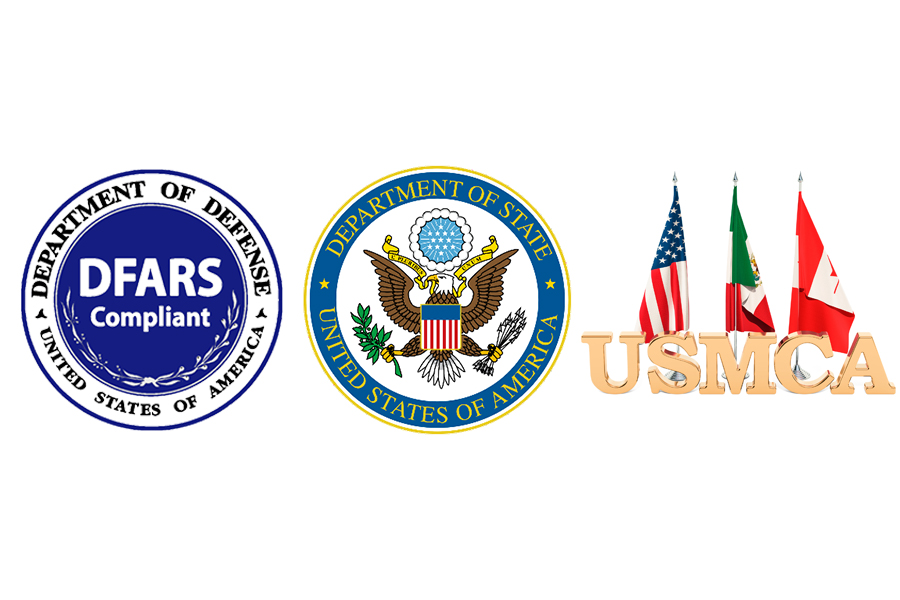Frequently Asked Questions On DFARS
Introduction
The Defence Federal Acquisition Regulation Supplement (DFARS) establishes regulations for companies contracting with the Ministry of Defence. It is designed to protect sensitive information during defence acquisitions. Its provisions are binding for both prime contractors and subcontractors of the Ministry of Defence. This means that companies must adhere to strict guidelines when handling classified information. The regulation also specifies how companies should develop their cyber security practices and manage supply chain risks.
Content of the DFARS
Compliance with the DFARS commences with understanding the fundamental requirements. Contractors must protect controlled information that is not classified under secrecy and apply standard cyber security measures. In most cases, companies are required to implement technical and administrative controls. Consequently, companies must establish policies that safeguard digital data and prevent unauthorised access. Contractors must also provide evidence that their systems have been inspected and evaluated by the appropriate authorities.
Many prime contractors in the defence sector initially find these guidelines challenging. Regular training and internal assessments, however, help to ease the process. In one instance, a medium-sized supplier aligned its internal review procedures with the DFARS. The supplier improved its cyber defences and met the compliance deadline. These cases indicate that companies can meet the standards through proper planning and commitment.
This supplement covers several key areas. Firstly, companies need to implement an effective cyber security strategy. The regulation requires continuous monitoring, regular audits and ongoing improvement of security controls. Data encryption, multi-factor authentication and access restrictions are common examples of such measures. Secondly, contractors must oversee their subcontractors. A contractor cannot disregard vulnerabilities in its supply chain. All suppliers must meet the same cyber security standards, otherwise the prime contractor may be held liable.
Another important area is the documentation and retention of records. Contractors in the defence sector are required to maintain complete records of compliance. In several cases, insufficient documentation has led to fines and loss of contracts. Consequently, companies establish systems that track and store compliance data. Most companies employ automated systems to facilitate record keeping and ensure rapid access during audits.
Non-compliance with the regulation can be very costly. Contractors may incur fines, lose contracts or damage their reputation if they fail to adhere to the DFARS. Given that, many companies invest in current technology and experienced personnel. Some companies have allocated budgets for compliance software and expert consultancy.
Technology plays an important role in meeting these requirements. With the increase in electronic communication and data storage, cyber security has become increasingly critical. Common tools include firewalls, intrusion detection systems and encrypted communication channels. For example, one armaments company installed an advanced firewall system, which reduced its vulnerability to cyber attacks. Consequently, such investments have led to fewer difficulties during audits and a reduction in compliance issues.
Small companies are not excluded. Many small suppliers collaborate with larger companies to ensure that their practices meet the DFARS standards. In most cases, larger contractors support smaller ones by organising joint training sessions. Consequently, this collaboration improves the security of the entire supply chain in the defence sector. In many cases, these measures have strengthened the relationships between prime contractors and their partners.
Conclusion
In summary, the Defence Federal Acquisition Regulation Supplement is an important addition for all companies involved in defence acquisitions. Its objective is to protect sensitive information and national security interests. Through clearly defined standards and implementable measures, the supplement ensures that every entity in the defence supply chain maintains a high level of cyber security. Further domestic advanced materials from the USA can be found at Stanford Advanced Materials (SAM).
Frequently Asked Questions
F: Who must comply with the DFARS?
F: All subcontractors and contractors of the Ministry of Defence must comply with the regulation.
F: How should companies manage their supply chain with respect to compliance?
F: They must ensure that all suppliers meet the same cyber security standards.
F: Which procedures assist in maintaining compliance records?
F: The use of automated record-keeping systems and regular internal audits facilitates record retention.

 Converters & Calculators
Converters & Calculators
 Chin Trento
Chin Trento



